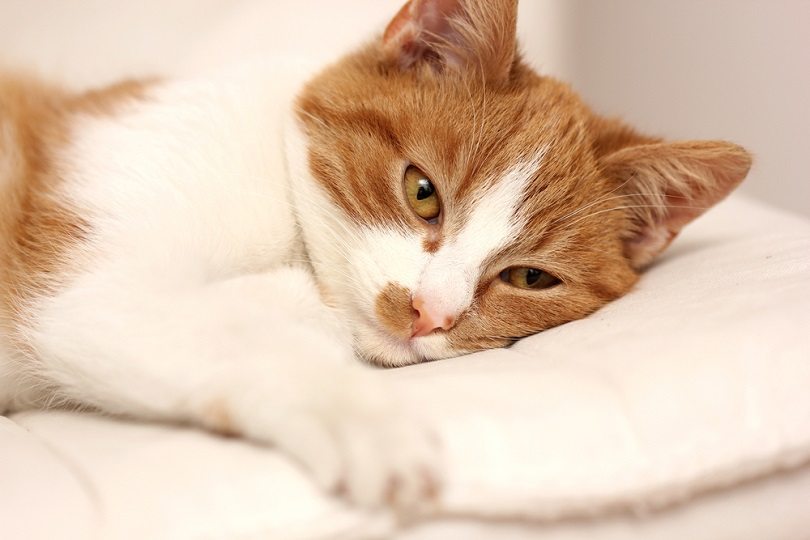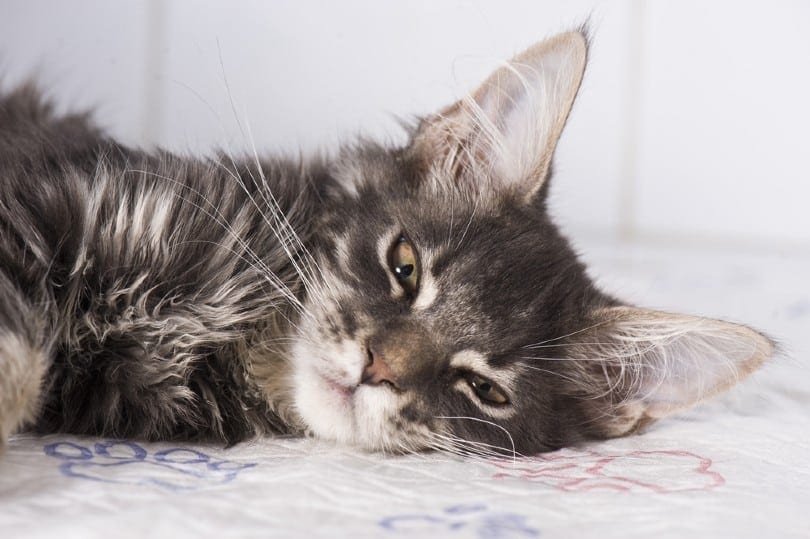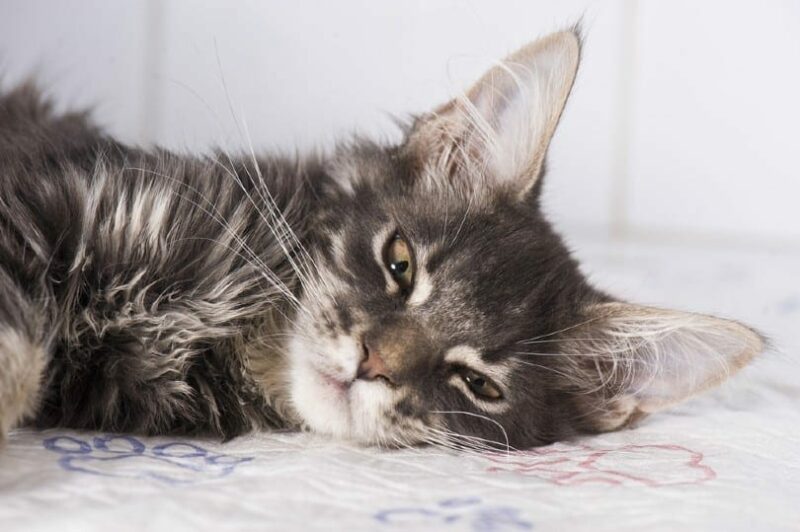Heartworms in cats are similar to those in dogs. However, they are difficult, if not impossible, to treat, and the best way to keep your cat healthy is to work with your vet to prevent them. Because heartworms can harm or kill your cat, getting immediate veterinary care can help alleviate the signs.
Your vet can also monitor them to see if they rid themselves of heartworms on their own. So, what signs of heartworms in cats should you be looking for? Keep reading to find out.
The 4 Possible Signs of Heartworm in Cats
1. Respiratory Problems
Heartworms don’t stay in the heart. They travel throughout the vascular system, and the first place they often end up is in the lungs, where they can restrict blood flow and cause inflammation.
You may notice intermittent coughing or signs that your cat has trouble breathing, like breathing with their mouth open. These signs are not unique to heartworms and should always be evaluated by your veterinarian for a proper diagnosis, but if heartworms are causing them, they must be addressed early.
When respiratory issues develop from heartworms, it’s called Heartworm-Associated Respiratory Disease or HARD.1 While it can be challenging to treat heartworms in cats, your vet may be able to address the respiratory problems, making it easier for them to breathe.
2. Lethargy

If your cat seems tired and uninterested in their toys or other activities, it’s a sign that they should see the vet. Lethargy, like respiratory problems, is not a definite sign of heartworms in cats but can indicate that something is wrong and should be diagnosed and treated.
In combination with other signs on this list, it could mean that your cat has contracted heartworms, in which case your veterinarian is the best resource for advice and treatment. You know your cat best, so trust your instincts if they aren’t acting like themselves.
3. Weight Loss
Heartworms in cats can cause general unwellness that can lead to weight loss. Coughing associated with the disease can also precipitate vomiting. You should take these concerns to your vet, who can determine the underlying cause and suggest appropriate treatment.
4. Death
Death due to heartworms can come years after a diagnosis, while your cat has been living a somewhat normal life before succumbing to it. It can also come on suddenly, without knowing your cat even had them. In that case, the only way to know that heartworms are to blame is for your vet to perform a post-mortem exam to determine the cause of an unexpected death.
Because the sudden death of a pet is shocking and heartbreaking, knowing what happened can provide closure and peace of mind, which is why some pet parents choose this option. It may also help prevent other pets in the home from getting sick.
FAQs About Heartworms in Cats
How Are Heartworms in Cats Diagnosed?

Many of the signs above can also indicate other cat diseases. Therefore, it is crucial to pinpoint the exact cause so it can be treated in the best possible way and improve your cat’s quality of life. There are several ways to diagnose heartworms in cats.
If your vet suspects heartworms, they will likely run blood tests for heartworm antigens. X-rays and a cardiac ultrasound may also show the presence of heartworms.
Can Heartworms Be Treated?
The medications used for dogs cannot be used for cats, and there is no effective treatment to cure heartworms in cats. Some cats may rid themselves of heartworms on their own after a few years, and your vet will recommend testing every 6 to 12 months or more often if they display concerning signs.
While there isn’t a way to permanently cure heartworms in cats, your vet can treat the side effects to make your cat more comfortable.
Can They Be Prevented?
Even indoor cats are susceptible to heartworms, but if mosquitos are prevalent in your area or your cat is frequently outside, you must work with your vet to prevent heartworms. A monthly treatment can be a topical medication or pill, but it should be given on a strict schedule to ensure your pet is protected.
You’ll need a prescription from your vet to purchase heartworm prevention medications, or you can buy them directly from their clinic in most cases.

Conclusion
Heartworms in cats can be serious, and if you see your cat behaving strangely or showing signs of distress, get them to a vet immediately. If they determine that heartworms are the cause, you can work closely with them to ensure your cat remains as healthy as possible with the hope that they can clear the worms on their own. If not, remain vigilant in watching for signs of their condition worsening so you take them to the vet promptly.
See Also:
Featured Image Credit: Kachalkina Veronika, Shutterstock












